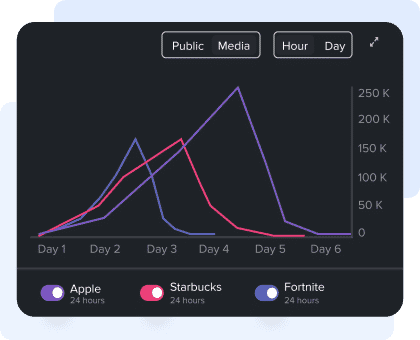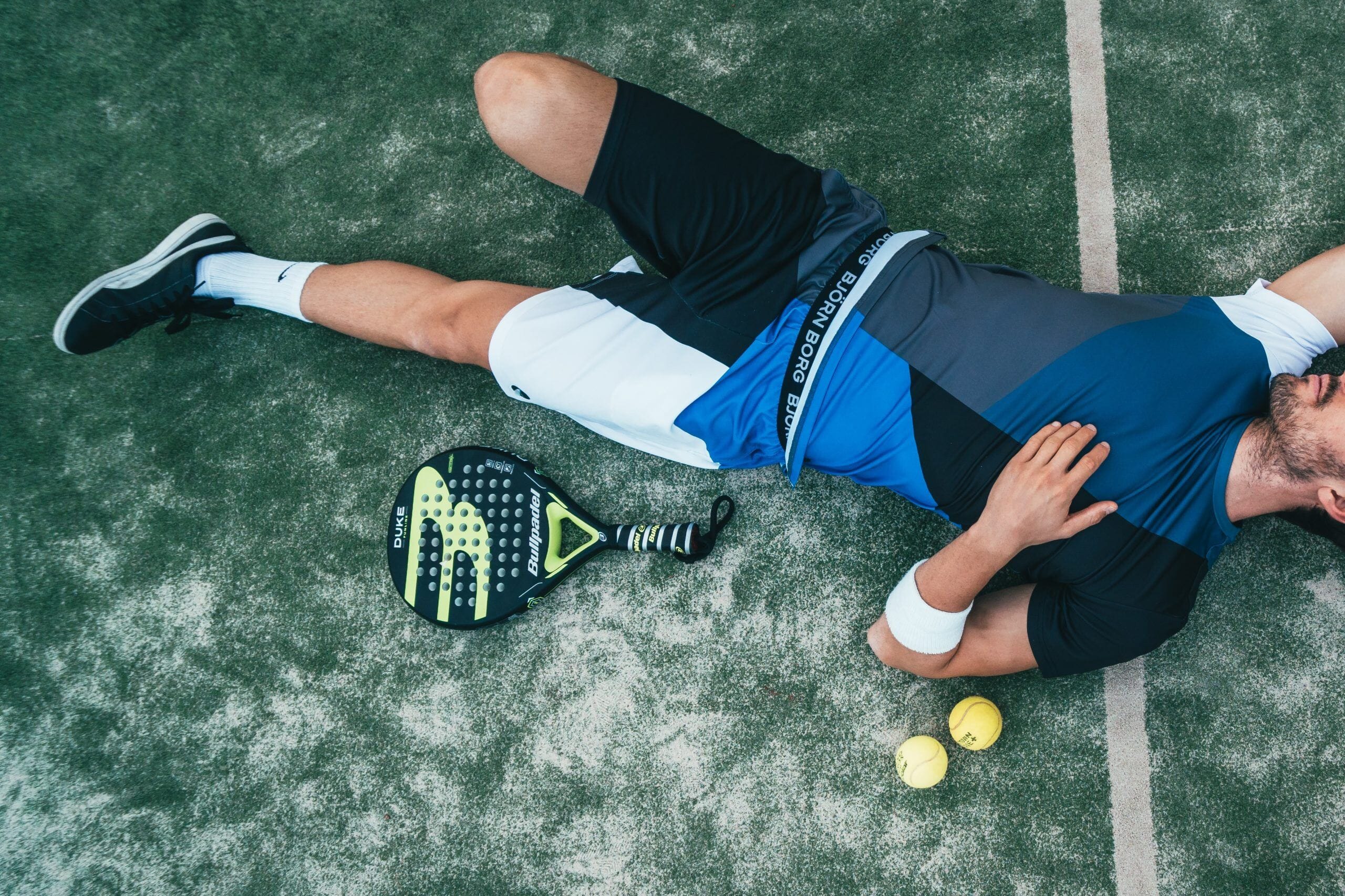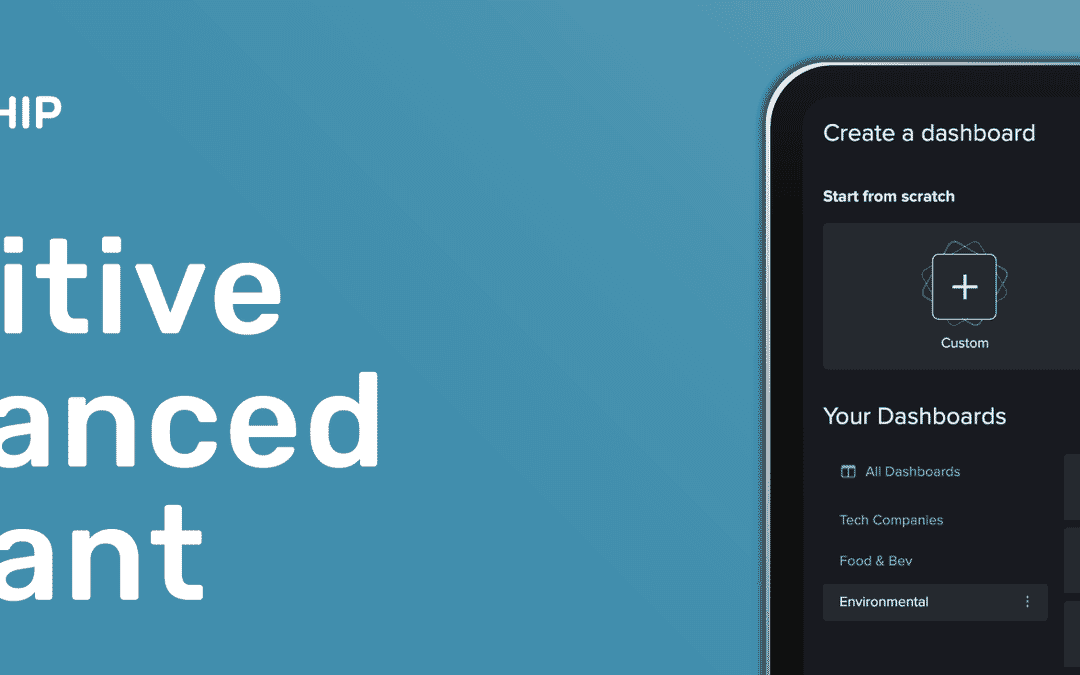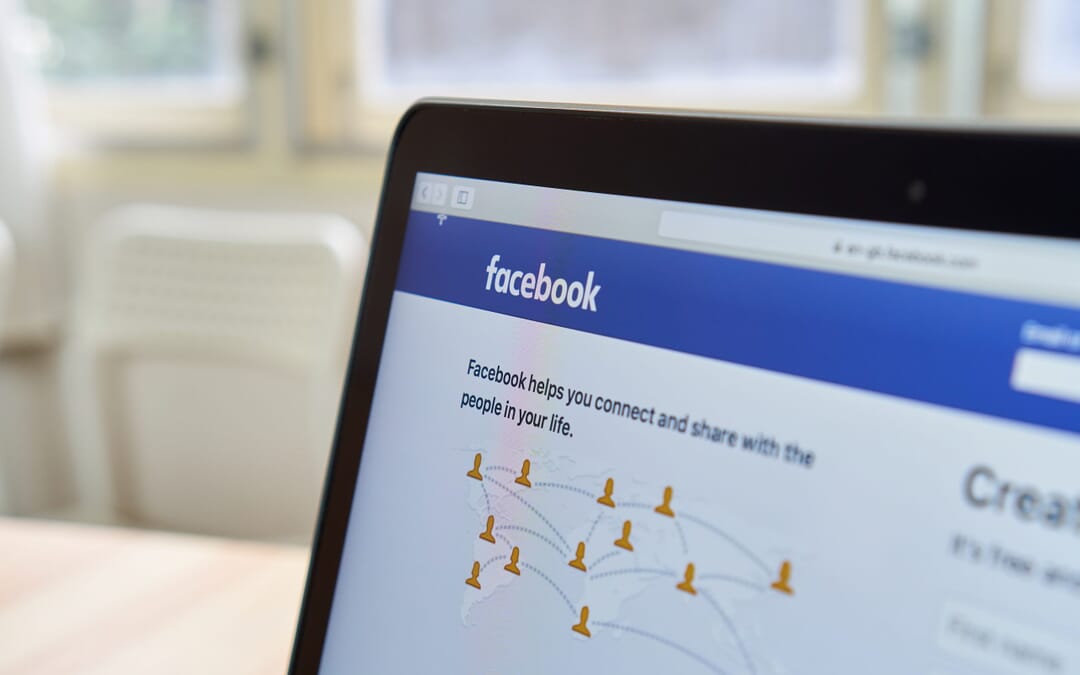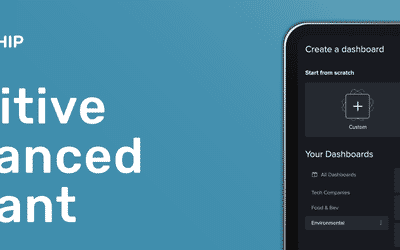Naomi Osaka, the 23-year-old phenom who has taken the tennis world by storm, recently made headlines due to her withdrawal from the 2021 French Open tournament. Osaka, who announced on May 26th that she would not be participating in press conferences during the tournament, was fined $15,000 within four days for not talking to the media after her first round win. One day later, on May 31st, Osaka announced on Twitter that she would be withdrawing from the tournament to prioritize her mental health.
Osaka was candid in her statement, revealing that she’s suffered “long bouts of depression” since her debut in the 2018 U.S.Open. President of the French Tennis Federation Gilles Moretton said that the organization was “sorry and sad” for Osaka, and that the situation was unfortunate.
Though the tournament made an effort to make amends, the stigmatization of mental health in professional sports has been an issue in multiple leagues, worldwide. Various athletes, like NBA star Kevin Love or Olympic swimming prodigy Michael Phelps, have stepped forward, using their platform to share their stories with depression or anxiety.
By creating their own narrative, athletes are able to take control from the media to tell their personal truth, without biased judgement. The public often treats professional athletes as invincible, and find it unimaginable to learn that they struggle just like the rest of us.
We looked at three athletes who have been forthright in their mental health battles – Naomi Osaka, Kevin Love, and Michael Phelps – to analyze how they have taken control of their narrative in the media. Let’s dive in.
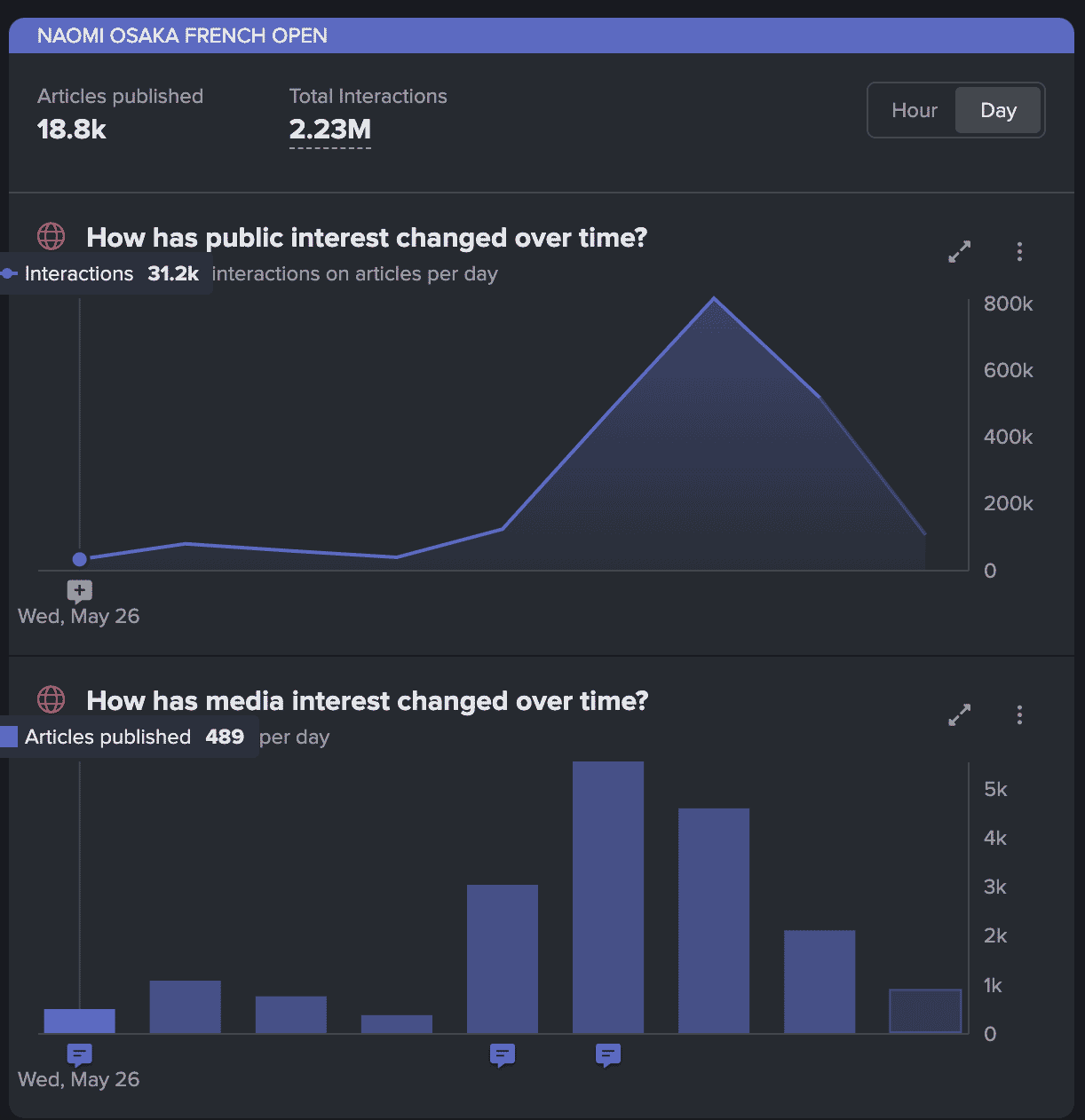
Osaka’s situation has caused a media frenzy, with 18.8k articles written and 2.23M engagements in just one week.
Top stories about Naomi Osaka
When Osaka first announced she would not be doing interviews at the French Open, 489 articles were published with only 31.2k interactions. It wasn’t until Osaka withdrew from the tournament on the 31st that the story really picked up, with 5.6k articles written and almost 500k engagements.
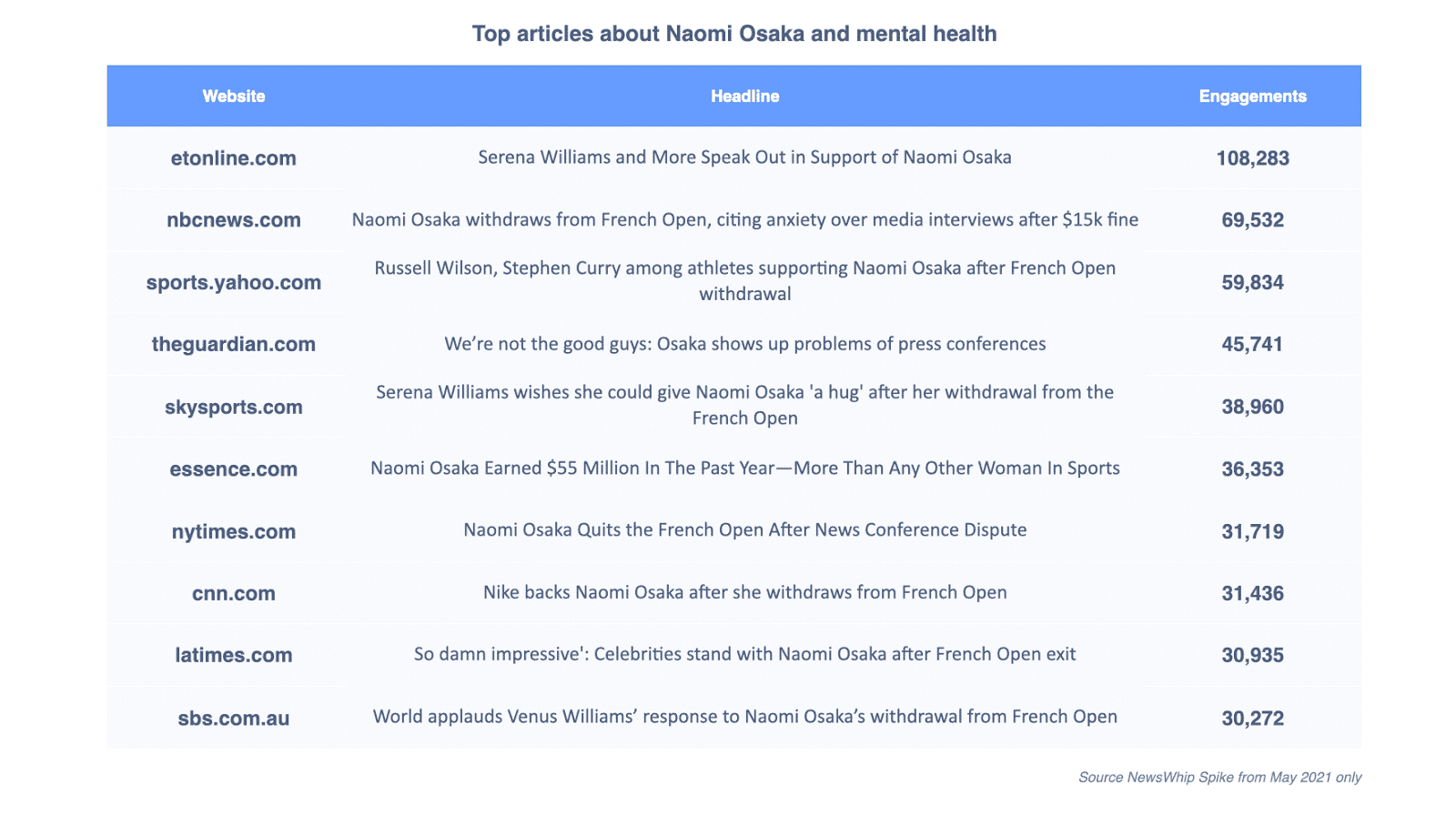
The top article about Osaka’s withdrawal was framed around Serena Williams, whom Osaka beat in the 2018 U.S. Open final to jump start her career, and other athletic greats. With 108.2k engagements, the article included excerpts from Martina Navrativola, Billie Jean King, Serena Williams, Russell Wilson, Stephen Curry, and more, all offering their support for the young player.
CNN reported that Osaka’s sponsor Nike backed her decision to withdraw from the tournament. “Our thoughts are with Naomi. We support her and recognize her courage in sharing her own mental health experience,” said the brand.
By withdrawing from the tournament on her own terms, Osaka was able to dictate her limits and clear the air before the media could do it for her. Unfortunately, Naomi Osaka is just one recent example of how impacted athletes are by the pressures they face. We looked back on stories about Kevin Love and Michael Phelps from the past year to compare how they’ve taken a stand for themselves in times of instability.
Top stories about Kevin Love
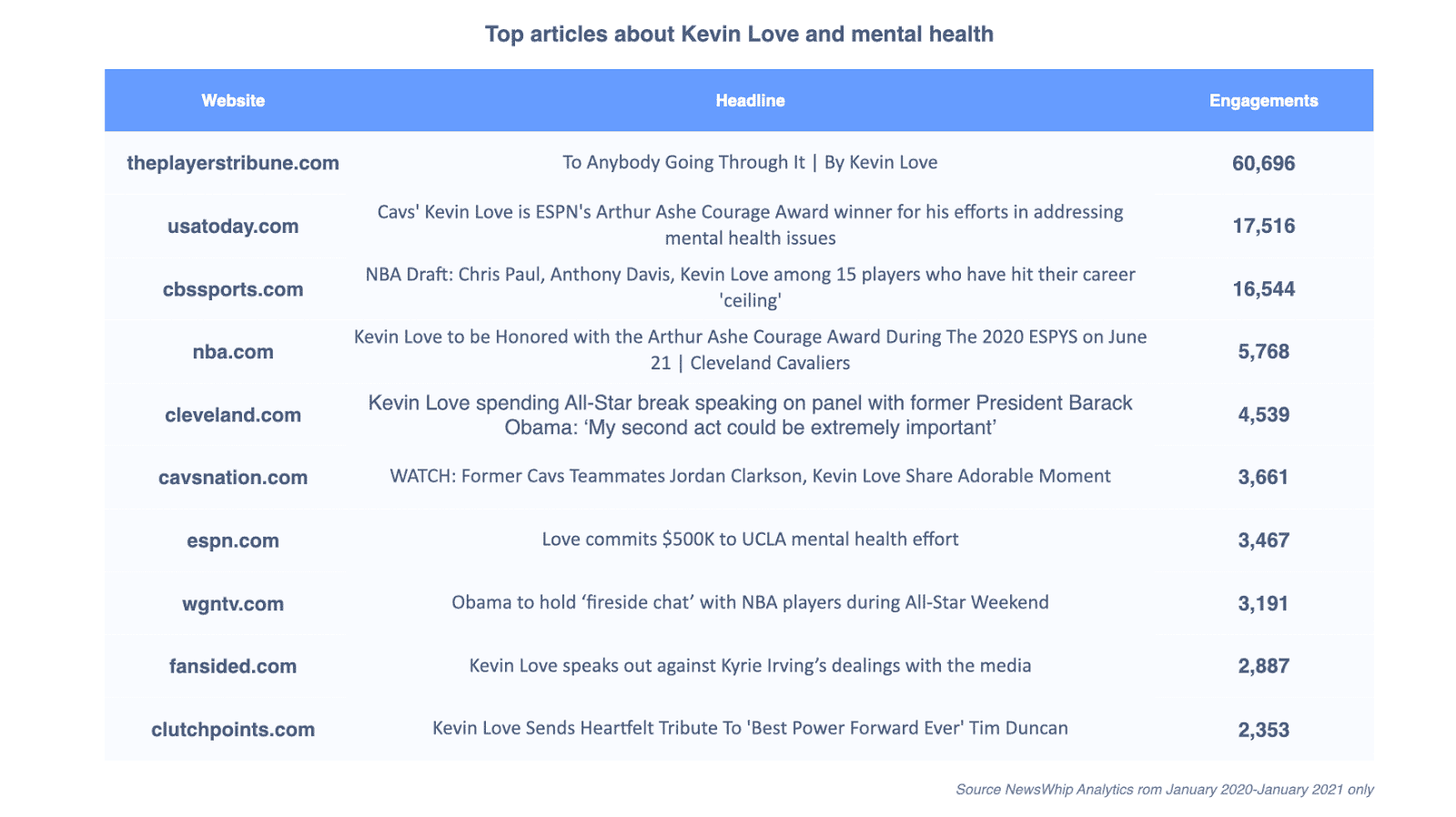
Over the past few years, Cleveland Cavaliers player Kevin Love has been open about his struggles both on and off the court. It all started back in 2018, when Love wrote a piece for The Players Tribune about a panic attack he suffered after halftime during a game against the Hawks in November 2018. “For 29 years, I thought about mental health as someone else’s problem…To me, it was a form of weakness that could derail my success in sports or make me seem weird or different,” Love confided.
Upon realizing that this was an issue that could affect anybody, Love wrote, “Mental health isn’t just an athlete thing. What you do for a living doesn’t have to define who you are. This is an everyone thing. No matter what our circumstances, we’re all carrying around things that hurt — and they can hurt us if we keep them buried inside.” His second story about his struggles for The Players’ Tribune was the top story containing his name for the year, with 60.6k engagements.
Since this open admission, Love has spent his time raising awareness for mental health, and was awarded ESPN’s Arthur Ashe Courage Award in June of 2020 in recognition of his efforts. The award, which is named after the tennis great, is given each year to a person whose contributions transcend sports.
Love also donated $500,000 last June to his alma mater, UCLA. His contribution to the school’s psychology department is used to help diagnose, prevent, treat and destigmatize anxiety and depression.
Love’s steps to bring awareness and create his own story have resulted in a deeper understanding of mental health from an athlete’s perspective, as well as greater opportunities to help treat the issue.
Top stories about Michael Phelps
Similarly, swimmer Michael Phelps has pushed for greater education and management of mental health in athletes, calling out the International Olympic Committee ahead of the 2021 Tokyo Olympic Games.
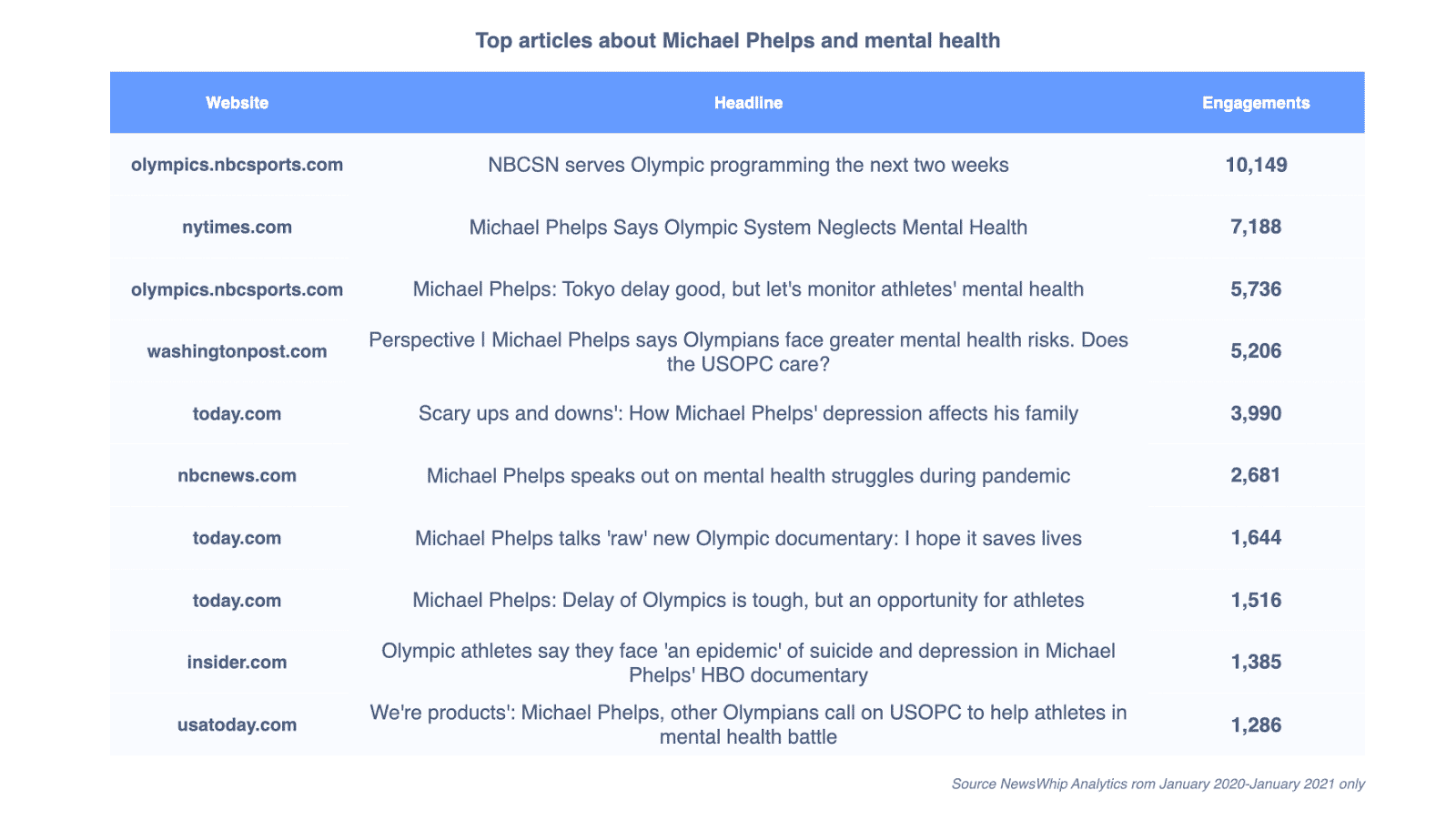
The New York Times reported that in Phelps’ documentary “The Weight of Gold,” Phelps deeply criticizes the U.S. Olympic system for neglecting the mental health of their athletes, garnering 7.1k engagements on the article.
The documentary follows Phelps, along with other star athletes like speed skater Apolo Ohno and hurdler Lolo Jones, as they speak about their mental health struggles, the perseverance it took to compete while feeling weak, and the “epidemic” of suicide amongst Olympic athletes.
In a way, Phelps has embraced his demons, saying in an interview with NBC Sports, “I’ve gone through a handful of pretty scary depressive spells since Rio. It’s not something that’s going to go away. But I’ve learned that my depression and anxiety don’t hold me back, they make me who I am.’’
Most engaged articles about mental health in sports
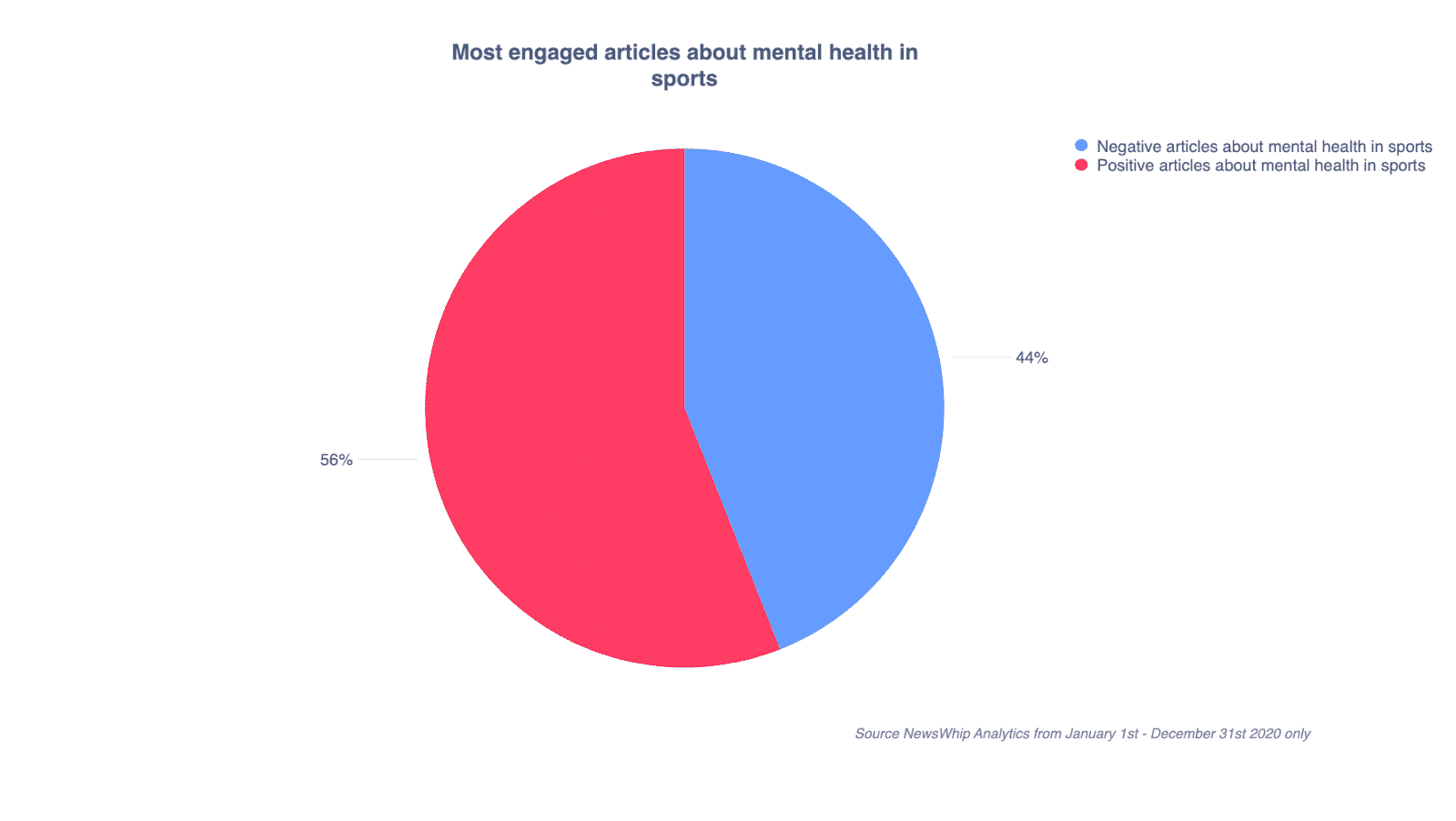
Out of the top 100 stories about mental health in sports, 44% covered the negative impact sports can have on athletes’ mental health, while 56% covered the positive impact they can have.
Of positive stories, many focused on sports being an outlet for athletes. Since the pandemic, cancellations of sports have taken a toll on young athletes, as they’ve lost a vital part of their routine. Losing that escape from reality has taken a toll on many.
Most that covered the negative impacts were similar to the stories we explored with Naomi Osaka, Kevin Love, and Michael Phelps. Many stories were about former NBA player Delonte West, who has faced homelessness since mental health issues derailed his career. Others focused on Dallas Cowboys quarterback Dak Prescott, who spoke about his anxiety and depression after his brother took his own life in April of 2020.
The burden of mental health can be an issue at any level. Fortunately, with so many of these athletes being outspoken in their mental health journeys, a precedent has been set for others to do the same. Creating their own narrative and taking control to destigmatize these issues has helped create a more accepting response from the public – but, as seen from Naomi Osaka’s situation, professional leagues, executives, and coaches need to put more effort into caring for their athletes’ mental health struggles.



